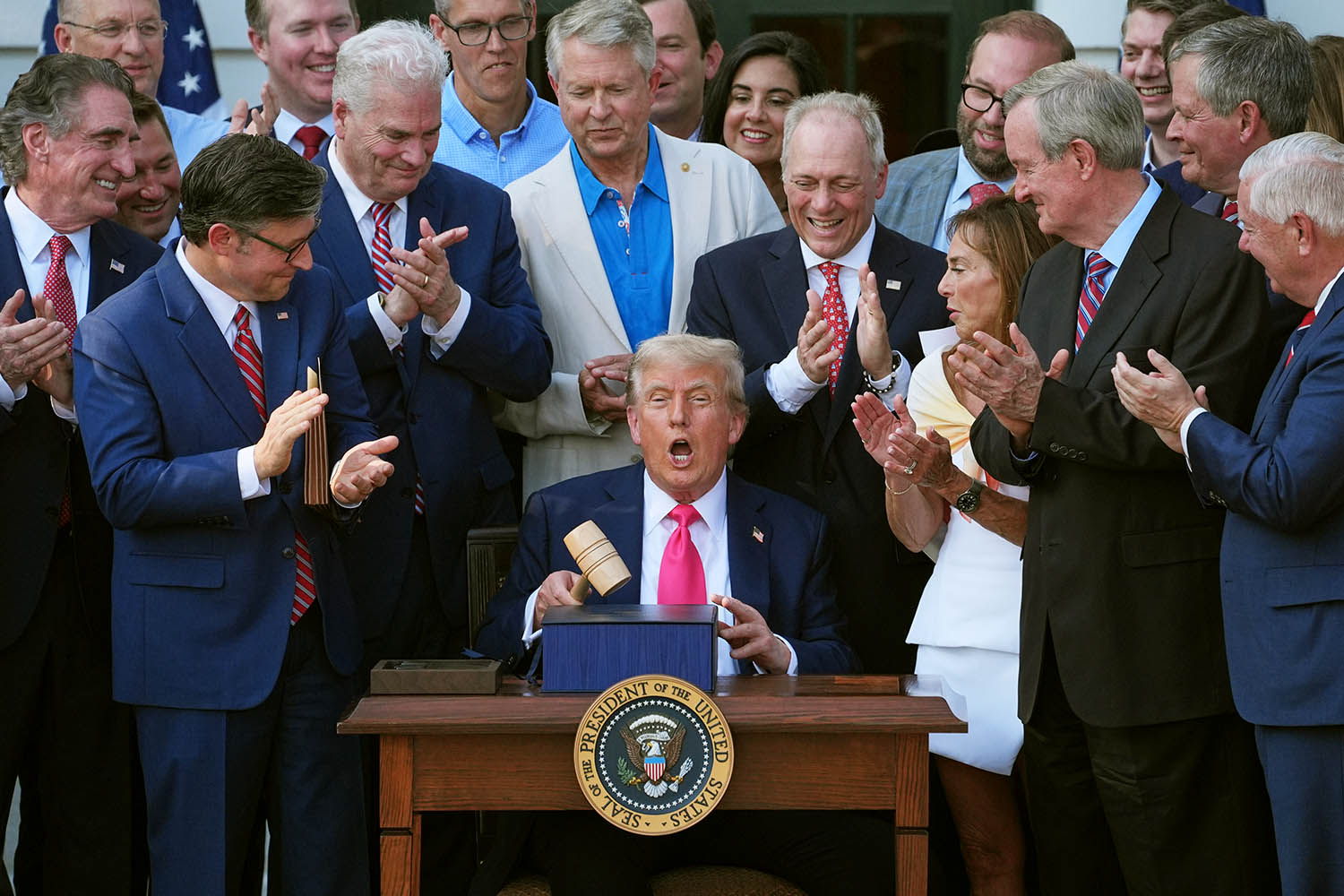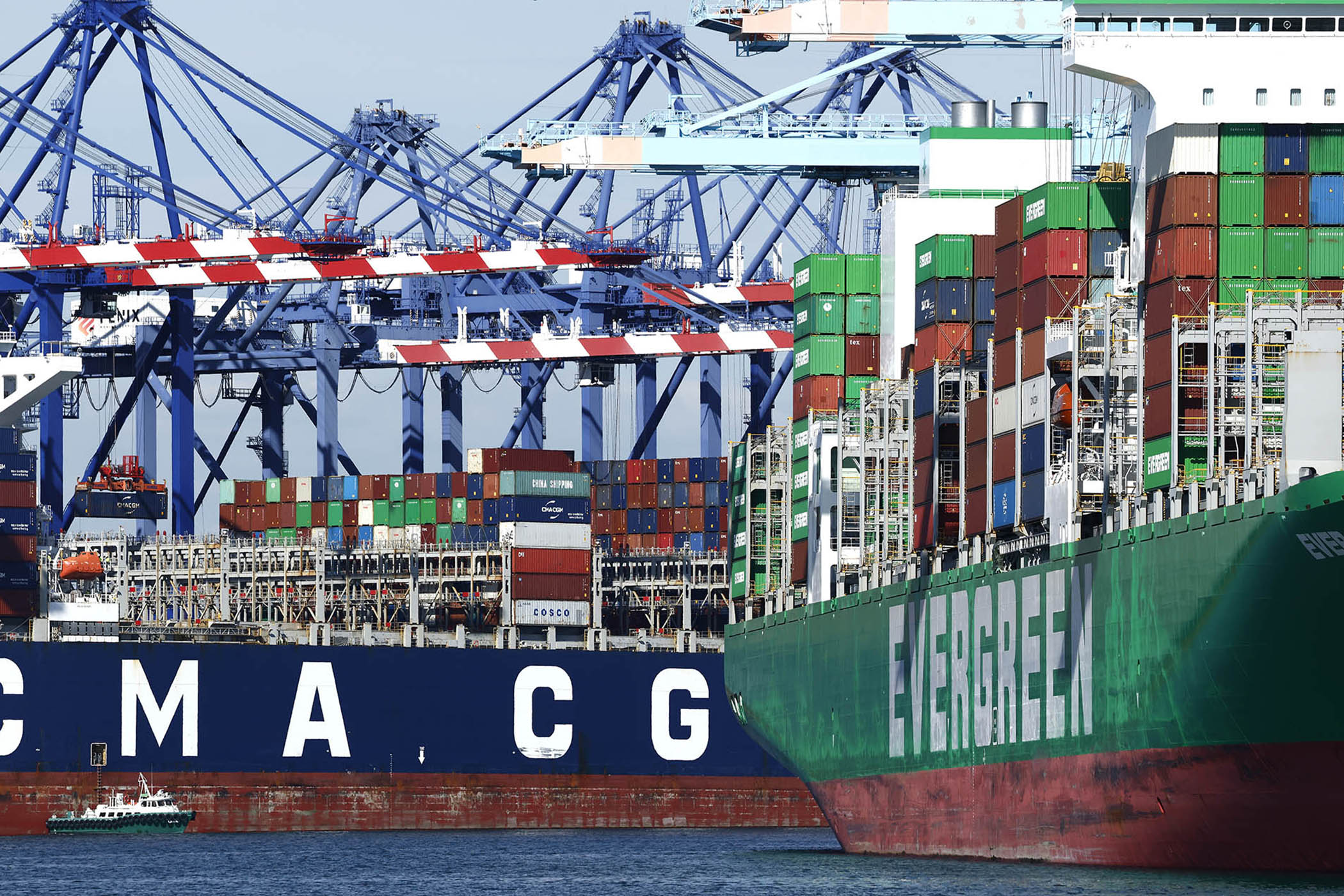The United States is the strongest and biggest economy on Earth. It produces a quarter of the world’s GDP, the same proportion it did 45 years ago. Of the world’s top 100 companies, 63 are American. More than half of world trade is financed in dollars. The US is the global leader in science, research and development.
Yet it has elected a president on the pretext that America is weak and needs to be made great again. The US is certainly suffering a cost of living crisis, as wages for average workers have stagnated while inflation has remained high. The high price of food staples such as eggs has become part of an angry national conversation. Social, racial, income and wealth inequalities are chronic and destructive. Profits as a share of GDP have climbed to all-time highs. America’s economic strengths are not translating into a sense of collective wellbeing.
Trump’s genius has been to exploit this simmering discontent, telling blue-collar workers and good old boys that their complaints are rooted in out-of-control immigration, woke liberals, an army of bureaucrats and a rotten disregard for manufacturing. As the world knows, Maga-ism has become a potent popular rightwing political force – but less well known are the intellectuals and bloggers who have taken rightwing thinking to new extremes, informing Donald Trump’s policies, and without whom it is impossible to understand the political choices of last week’s high risk “One Big Beautiful Bill Act” (OBBBA) – or his successful parallel attacks cowing the media and academia alike.
Let me introduce you to Curtis Yarvin, informal guest of honour at one of Trump’s inaugural galas in January and among the most influential exponents of the “dark enlightenment”. In his tortured universe, the American liberal-left operates what he calls a dominant oligarchic “Cathedral” that, through its commitment to fairness, egalitarianism, regulation and expert opinion, is extinguishing the essence of freedom. By freedom he means unfettered personal liberty, especially for the super-rich. It is liberal democracy that permits this threat to civilisation, along with the bureaucrats who run it. All must be exorcised by a strongman – a contemporary Caesar – who will destroy the Cathedral, if necessary by force.
The president is more like Nero than Augustus – fiddling while Rome burns
The president is more like Nero than Augustus – fiddling while Rome burns
Bonkers? You might have thought so a year ago, but understanding these ideas helps explain the full force of Trump’s presidency. It is Caesar-type thinking that introduces swingeing tariffs as a form of imperial tribute, partially rebated only to the favoured who kowtow the fastest. Now the imperial president has compelled a doubting Republican party to cast aside any pretence of fiscal sanity with OBBBA, launching $4 trillion of tax cuts to deliver the highest sequence of projected budget deficits in US peacetime history. But this recklessness is politically well judged. Billionaires and corporations are looked after, as are “seniors” – and making overtime and tips tax free are eye-catching populist moves, on which he campaigned. The Cathedral is attacked. Taxes on university endowments are lifted sharply while spending on scientific research outside AI, quantum, biotechnology and nuclear has been decimated. Yes, the cuts to Medicaid (only to kick in after the midterm elections) are deep, but targeting undocumented immigrants and demonstrably able-bodied people will be popular with his base – as will the huge increase in the US’s border force. And, in the short run, this deficit spending is likely to deliver an economic spurt, as the US stock market joyfully recognised last week when it reached new highs.
But for all that, this is one of the biggest economic gambles ever made. Will the world’s investors continue to finance the US’s deficits on this unprecedented scale? Over the next four years, the US has to refinance $28 trillion of maturing low-interest rate, short-term government debt, and on top borrow an additional $7 trillion as a result of OBBBA – and with no reduction in budget deficits in prospect until 2034. Before the end of the decade, debt service costs will exceed the annual budget deficit. For any other country, that would trigger a first-order debt and currency crisis. Caesar Trump is more like Nero than Augustus – fiddling while his country burns.
The dollar is already weak, the US bond markets queasy, and investors moving out of dollar assets. Lack of viable alternatives on the necessary scale may allow Trump to get away with his fecklessness – but for long-term investors the attack on the US’s science base is further undermining confidence. It will be touch and go; a sell-off of US debt this autumn or even earlier is likely, especially if the Fed is seen to be strong-armed into making interest rate cuts it does not want.
But fears over government debt will become generalised. EU states can at least find partial protection within the euro. For the UK and sterling, alone in this tough financial environment and an obvious target for attack, the economic risks are clear – especially after last week’s failure to secure any welfare savings. The now unsackable “iron” Chancellor Rachel Reeves will have to reassure the debt markets in her budget that the British budget deficit is moving decisively lower, with plenty of financial headroom. Substantial tax increases – at least £10bn – are inevitable.
For Nigel Farage and Reform, the stakes are also high. If Trump’s gamble comes off, be sure they and Britain’s entire rightwing ecosystem will be further emboldened. If OBBBA crashes, association with Trump will become toxic. In all cases, Sir Keir Starmer’s Labour government has to embrace an intellectual and political audacity to which so far it has been averse. It must explain the hole we are in, offer hope and – by arguing, arguing, arguing – learn to lead.
Newsletters
Choose the newsletters you want to receive
View more
For information about how The Observer protects your data, read our Privacy Policy



